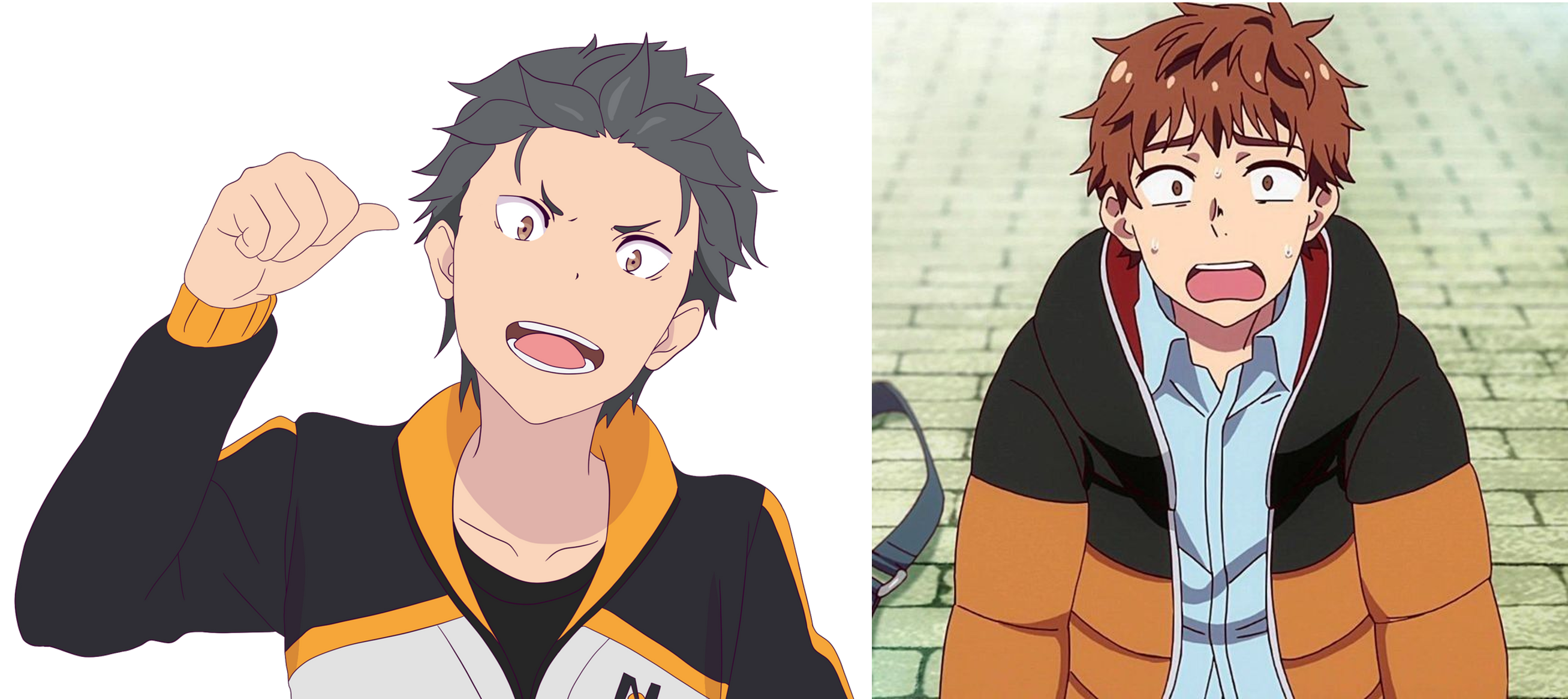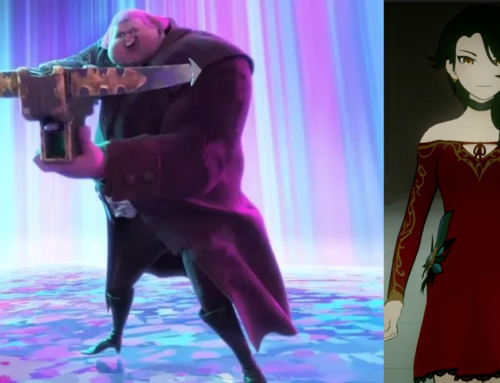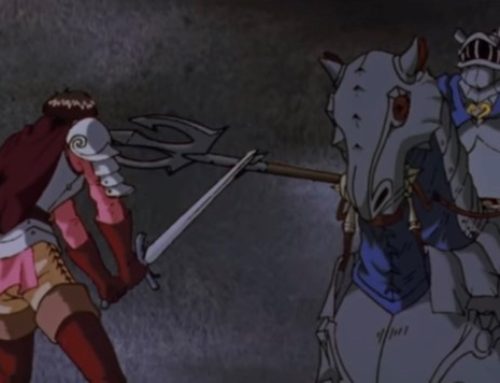…And we’re back! It’s been a whole month of non-stop, regular writing, but I made it to 50,000 words for NaNoWriMo! And now I’m taking the weekend off from writing just to cool off my brain tubes.
There was something I noticed while writing over the last month was the mood whiplash of some of my own chapters and character arcs. Notably, I was writing chapters for the character of Amri that are meant to be cozier, less terrifying than some of the chapters for Rostam, Cyrus, Namid, and the Tomblords that are going at the same time. Without revealing too much in the way of spoilers, these chapters for Amri involve him doing some things that would make any adult who saw them cringe.
I will openly admit that part of the reason that I have so many viewpoint characters, including multiple protagonists, is so that the audience doesn’t have to care about all of them. The idea is that there will always be something for everyone, and even if you openly hate some of the characters for whatever reason, you can still enjoy the story arcs of the others, and maybe even learn something about why the characters you don’t like are the way they are. Or you can just enjoy hating them; let’s face it, some characters like Amenhotep are meant to be hated.
Amri is a character I wrote knowing some people are not going to like simply because he’s pathetic. Why he’s pathetic should be clearly understandable, but part of the engagement is getting the audience to see a character who they (probably) don’t like, who (probably) makes them cringe, and has a perfectly understandable reason for being the way they are, and then exploring why that reason (child abuse) doesn’t make up for his character flaws. Two other characters explored alongside him are Ephorah, who is openly racist and gets empathy from some readers but not others, and Namid, who has a similar reason for being flawed as Amri, but gets more sympathy from the audience, mostly because she’s funny.
The thing is, the general attitude I get from a lot of people consuming various media is that cringe is supposed to be an inherently bad thing. Afterall, watching a character act in a way that makes us cringe is, by definition, making us feel unpleasant things. Is this inherently bad in our entertainment?
Let me put this another way; does media need to always make us happy? The obvious answer is a resounding “no.” One need only look at the tragedies written by Shakespeare or the volume of successful horror franchises out there to know that humans do not just consume media to make them feel happy. Rather, they consume media to partake in a whole smorgasbord of human experiences, and as I’ve said before, one purpose of fiction is to explore the results of certain behaviors without having to face the consequences. We can watch characters like Romeo and Juliet make impulsive decisions because they’re teenagers and we might think they’re stupid for killing themselves or making these bad choices, but then we walk out of the theater having learned an important lesson without being dead ourselves. You can apply the same thing to stuff like horror, or drama.
But what about things that make us cringe? Do the rules apply here as well? Are characters that make us cringe bad characters? The straight answer is no; for the same reasons that Romeo and Juliet are not badly written characters just because they make the sorts of mistakes stupid teenagers make, the characters who make us cringe are not bad, either. But there are two problems; first, the audience needs to understand that the cringe is deliberate, and that the purpose is to teach at least a portion of the audience an important lesson on what not to do; and second, the author needs to handle the subject delicately and with extreme caution.
I’ve sat down and watched the first and second seasons of Re: Zero, a show that I initially ignored because it was an isekai that came out at roughly the same time when I had finished watching the first season of Sword Art Online, which had left such a bad taste in my mouth after the fairy arc that I avoided isekais for a while. By the time I came off of my hiatus, Re: Zero was being widely panned for having no second season in sight, and also for allegedly playing into a lot of common isekai tropes, combined with an inherently cringy protagonist. It wasn’t until season two came out that people really started talking about the show again, and audiences were finally acknowledging what Subaru Natsuki really is: a cringy, loser protagonist on a journey to improve himself as a human being.
That said, even though most people watching the show have turned around and come to appreciate it, there are still a lot of people who cannot sympathize with Subaru, and still don’t recognize that he’s meant as something between a warning and an inspiration for teenage boys. Notably, most of the people who still cannot appreciate Re: Zero are either women, or men in their forties, the latter of which either never had a problem with the kinds of cringy behaviors that Subaru displays, or are probably beyond help. This is the first bitter pill to swallow about cringy characters: some people will never understand your intentions and wouldn’t care even if they did.
On the other hand, a show that appears to do a much worse job in handling this subject matter is Rent a Girlfriend. This is one that I admittedly have only seen the first season, and was going to watch the second until the internet collectively brought down the hammer of criticism and rage against the show. Even people who like Re: Zero and appreciate the character arc of Subaru Natuski don’t like Rent a Girlfriend or the character of Kazuya Kinoshita.
In this show, Kazuya is a similar character of Subaru, and he really deserves more analysis in what could be a whole series of blog posts. His flaws stem from a very realistic source (lack of self-esteem primarily from parental neglect and abuse), he’s a cringy, loser protagonist who struggles with his relationships with his family, his friends, and his potential but not quite girlfriend, and his “recovery” has very realistic ups and downs and is played out more realistically than fiction usually shows, and maybe even more realistically than audiences will tolerate. But the show is almost universally hated right now, and while it is possible that the anime will correct the mistakes that the manga makes and create a better arc mirroring that of Subaru Natsuki, the audience has spoken.
Personally, based upon how everyone has reacted to the show, I think the real problem with Rent a Girlfriend isn’t the protagonist itself; it’s the disorganized nature of the world. I have been personally interested in loser protagonists for a while now, and I believe that one thing you must have in a story like this is a realistic chain of consequences for a character’s actions. In order for the character to grow, he can’t just suffer randomly throughout the story. There needs to be a logical chain of events between what the character has done wrong, how it created negative consequences, and what he can do differently in the future.
In Re: Zero, the entire premise is that Subaru dies horrifically and respawns, allowing him to have the arguably unfair ability to learn from his mistakes. Normally, this means that his bad choices get undone, but not so in the middle of season 1 where he makes a fool of himself in front of a massive crowd of people, gets the stuffing kicked out of him by a knight in a duel, and makes his love interest so upset she flat out tells him she never wants to see him again. We can actually follow this chain of events very clearly, and when Subaru improves upon himself as a character, he is rewarded as one would expect. Like a mystery novel where all of the clues are available to an observant viewer, the reveal at the end makes sense, and the audience is satisfied.
In Rent a Girlfriend, Kazuya suffers, and he makes bad choices, but they aren’t always related. In fact, the most common situation where he suffers for bad choices is when he lies, and then gets caught. Other than that, he’s as likely to be punished for random chance as he is to suffer for his character flaws. And the characters around him don’t make a ton of sense, either. Part of this can be justified by the fact that they aren’t that much more mature than Kazuya, but a big part of it is just plain nonsensical reasoning behind their actions. One girl is only interested in Kazuya because of an inexplicable heart condition that makes no sense in universe or out. The main girl that Kazuya wants as a relationship with is shown to always be acting perfect when in reality she’s on the verge of collapse at any moment, and this is actually one of the strongest points in the shows favor. But her interactions with Kazuya, whether it’s being cold and distant or buying him a new phone case for Christmas, don’t have a strong correlation between when he’s doing something right or doing something wrong. There’s more of a connection there than with any of the other girls involved, but that’s more of problem with the other girls than it is a point in her favor. Kazuya doesn’t really seem to learn his lesson, but that’s because there isn’t a clear lesson in universe for him to learn.
I’m definitely going to have to address the subject of loser protagonists again in the future, but for now, I think the takeaway is that a cringy character can work if handled well, but it will fall on its face if you don’t make sure that the characters around the cringy protagonist are acting rationally. An issue that might pop up, of course, is whether the other characters are also meant to have a host of problems. Then it’s a cringy character living in an open-air asylum, and that’s a whole different storyline.
But always remember: you can’t please everyone. Even if written well, some people aren’t going to like your cringy character’s arc, even if it is meant to be a story about self-improvement. The good thing is, most of the people like that aren’t going to be the target audience, anyway.




